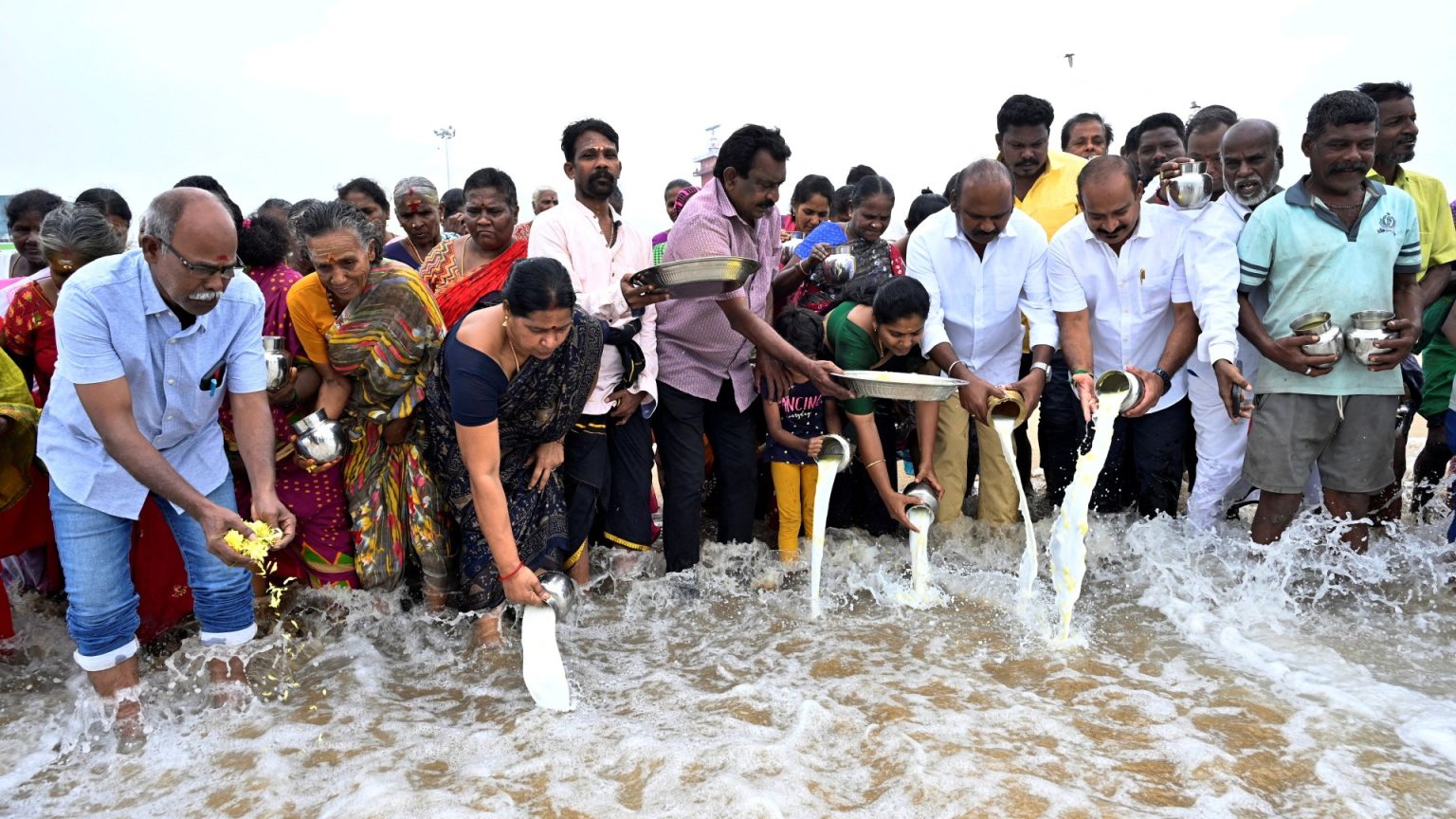The 20th anniversary of the devastating Boxing Day tsunami brought forth a wave of grief and remembrance as mourners gathered along the shores where the tragedy unfolded. On December 26, 2004, a colossal 9.2-magnitude underwater earthquake off the coast of Sumatra, Indonesia, triggered a series of monstrous waves that claimed the lives of an estimated 230,000 people. The sheer scale of the disaster is difficult to comprehend, with waves reported to have reached over 100 feet high upon reaching land. The tsunami’s impact stretched across the Indian Ocean, devastating coastal communities in Indonesia, Sri Lanka, Thailand, and India, leaving a trail of destruction and displacing over 1.7 million people. Twenty years later, the emotional scars remain, and the day serves as a poignant reminder of the fragility of life in the face of nature’s fury.
The ceremonies held across the affected regions were a testament to the enduring impact of the tsunami. In Banda Aceh, Indonesia, one of the areas hardest hit by the disaster, sirens wailed for three minutes, marking the precise moment the earthquake began. Nearby, at a mass grave holding the remains of 14,000 unidentified victims, mourners offered prayers and paid their respects, a poignant reminder of the sheer number of lives lost and the enduring uncertainty for many families. Similar scenes of remembrance played out across the region, from candlelight vigils in Thailand to quiet prayers offered along the Indian coastline. The collective grief, palpable even after two decades, underscored the shared experience of loss that continues to bind the affected communities together.
The stories of individual loss are particularly heartbreaking. John May, who lost his 25-year-old daughter Lisa while she was backpacking in Thailand, spoke of the enduring pain of her absence, stating that the memory feels “almost as real today as it was all those years ago.” This sentiment echoes the experiences of countless others who lost loved ones in the disaster. Dorothy Wilkinson, who lost her partner and his parents in Thailand, found solace in attending a memorial event, describing it as a bittersweet occasion that both celebrated their lives and acknowledged the profound sadness of their absence. These personal accounts underscore the enduring impact of the tsunami, a tragedy that continues to shape the lives of those who survived.
Daniel Poole, a British surfer who was in Sri Lanka with his now-wife, provided a chilling eyewitness account of the moment the waves struck. Recounting the experience, he described witnessing a “great wall of white water” crashing towards the guesthouse they were staying in. The sheer force of the water ripped through the building, washing them through a wall and 150 meters into the jungle before they resurfaced. His survival, and that of his wife, is a testament to the unpredictable nature of the disaster, where survival often hinged on sheer luck. His vivid description paints a stark picture of the terror and chaos that unfolded as the tsunami made landfall.
The tsunami’s impact extended far beyond the immediate destruction. The loss of life, the displacement of communities, and the destruction of infrastructure posed significant challenges for the affected regions. The long-term recovery efforts required international collaboration and significant resources. Rebuilding homes, restoring livelihoods, and providing psychological support to survivors were all crucial elements of the recovery process. The scale of the disaster highlighted the importance of early warning systems and disaster preparedness, lessons that have been incorporated into subsequent disaster management strategies globally. The tsunami served as a stark reminder of the vulnerability of coastal communities to natural disasters.
The 20th anniversary commemorations underscore the importance of remembering the lives lost and the lessons learned from the Boxing Day tsunami. While the physical scars of the disaster may have faded in some places, the emotional wounds remain. The stories of loss, survival, and resilience serve as a reminder of the human cost of natural disasters. The global response to the tsunami demonstrated the capacity for international cooperation in times of crisis, but it also highlighted the need for ongoing investment in disaster preparedness and mitigation strategies. The continued remembrance of the Boxing Day tsunami ensures that future generations understand the magnitude of the event and the importance of working towards a more resilient future in the face of such devastating natural forces.


